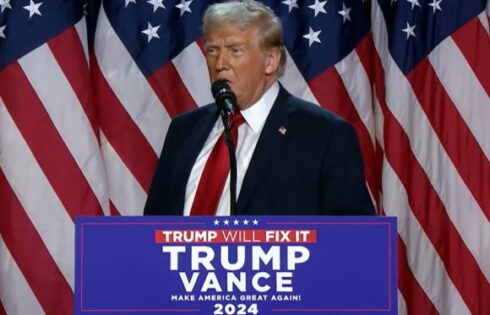 Call it an incidental fee, differential tuition, or tax on the gifted—whatever term one chooses for this year’s $500 increase in the cost of Honors College enrollment, its economic effects were predictable from the start. Tax honors education, and it is wise to expect less of it in the future, though just how much depends on student sensitivity to changes in price. Michelle Monroe takes a look at the data in today’s Wildcat, and it’s Economics in one lesson:
Call it an incidental fee, differential tuition, or tax on the gifted—whatever term one chooses for this year’s $500 increase in the cost of Honors College enrollment, its economic effects were predictable from the start. Tax honors education, and it is wise to expect less of it in the future, though just how much depends on student sensitivity to changes in price. Michelle Monroe takes a look at the data in today’s Wildcat, and it’s Economics in one lesson:
There are 629 fewer Honors College students this year than last after almost 19 percent of the 2009 Honors College population withdrew. The total enrollment is at 3,116, the most significant decrease since a peak high in 2004 with 4,228.
This year the Honors College implemented a $500 yearly fee. Some students left because of this new cost.
“There were clearly students who decided they didn’t want to remain in honors when the new fee was instituted,” said Patricia MacCorquodale, dean of the Honors College. “We knew there would be students that would decide to leave the college than pay the fee.”
The enduring criticism of our Honors college is that honors courses are sparse, scattered unevenly across various departments and disciplines. The enduring response is that small classes led by real faculty are expensive, and fee money can help pay for expanded honors options. But the goal (more courses) and the results (fewer students) are at odds. There will be four more honors courses this spring—but 629 fewer students to take them. Little wonder if offerings remain limited, sizes small, and courses expensive, no matter how excellent they may be.
More after the jump:
MacCorquodale said that many students who were leaving sent messages saying “that they enjoyed their honors experience, but they weren’t graduating with honors.”
“People didn’t leave because they were dissatisfied or disappointed in their experiences,” she added.
I enjoy free pizza. I am rarely dissatisfied or disappointed, even when it tastes like cheesy cardboard. In fact, I consume more than I would if at any price above zero dollars. But charge $500 for an additional slice and I’m out of there. Honors enrollment is just the same—students may not have left because they felt disappointed, but pleasant messages belie rational choices. 629 students decided the benefits of an additional year of Honors education were worth less than $500.
As for the future of Honors enrollment?
The number of freshmen entering the honors program fell by 136 this year, meaning around 12 percent fewer freshmen were admitted. However, 2009 was a peak enrollment year for first-year honors students, totaling 1,095, almost doubling 2008′s total of 697.
“For the last two year(s) we’ve been admitting more honors students, in part to help the UA with (sic) their recruitment goals,” MacCorquodale said. “With the uncertain economy, we have to do more to try and yield the calls that we want, so last year and this year we have about the same number of students.”
Bear in mind that 2008 honors enrollment was an outlier on the low end. As OIRPS data show, enrollment prior to 2008 has been steady, between 750-950 students per year.
As my colleagues have argued on this and other issues, freshman enrollment is a poor indicator to mind and manage (at least when quality is in question). More telling will be the effect of the new fee on honors graduation rates (45-50% in four years, 55-60% in six) and class by class attrition. How many freshmen will choose to drop once the first Bursar’s bill comes due?
For what it’s worth, I pay the $500 fee (without six-month library privileges, I’d owe as much in overdue charges). Perhaps it’s a case of the sunk cost fallacy, but I’m still willing to pay.
Many others see things differently. Differential tuition reflecting real quality is a good thing—prices of various programs ought to better reflect their educational benefits, and perhaps if the “Honors fee” was sold as “Honors tuition” it might have taken less flak. More likely, the response to the fee means it’s time for a frank assessment of Honors benefits.
One has to sympathize a bit with the Honors dilemma. Expand enrollment to drive demand for courses, and they’re criticized for diluting standards and affecting quality. Tighten admissions requirements, and they’re criticized for academic elitism and limiting access. Impose a fee, and they’re criticized for all of the above. Over the years, the college has tried it all, and taken crap from all corners.
But the goals and strategy of our Honors college ought to come down to one question: what criteria should define an honors student? Academic excellence, based on grades and test scores? The enrollment goals of the university at large? Or willingness to pay? Each answer suggests a very different role and future for Honors education at UA.
Conor Mendenhall blogs at the Desert Lamp and is a contributor to the Student Free Press Association.




Please join the conversation about our stories on Facebook, Twitter, Instagram, Reddit, MeWe, Rumble, Gab, Minds and Gettr.